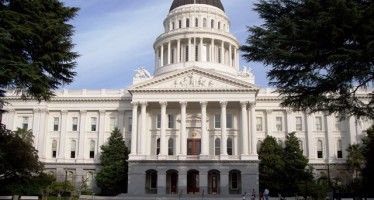CA schools pass weakened assessments
 Californians troubled by the public school drive toward statewide standardized testing now face a reformed — but weaker — system of assessment.
Californians troubled by the public school drive toward statewide standardized testing now face a reformed — but weaker — system of assessment.
Two separate policy changes fueled the about-face. At the federal level, Congress turned its back on No Child Left Behind, the Bush-era legislation that drew consistent fire from some Republicans and Democrats concerned that assessing student performance was becoming more formulaic and outcome-based than appropriate.
The new law — known as the Every Student Succeeds Act — “aims to take a more holistic approach to evaluating schools, using qualities beyond test scores,” the Los Angeles Times noted. But questions have arisen as to how much wiggle room ESSA can, or should, give state educators when it comes to assessment. “Under ESSA, states have to devise a ‘system of meaningfully differentiating’ schools by looking at academics in addition to at least one other factor, as long as the academics are given ‘much greater weight,'” reported the Times. “ESSA calls for states to intervene in the bottom 5 percent of their schools, in addition to schools where specific groups of students consistently underperform and high schools with graduation rates below 67 percent. States can determine what they do to those schools, as long as the interventions are ‘evidence-based.'”
Off the hook
In California, the changes drew initial enthusiasm. The state Board of Education has busied itself replacing its own Academic Performance Index with a new set of guidelines also designed to bring a more holistic and nuanced approach to capturing what schools do well or don’t. But the lapse in federal rigor between the weakening of No Child Left Behind and the passage of ESSA gave California officials an opportunity to loosen standards markedly — one they seized upon, to the dismay of critics. “Since 2002, No Child Left Behind tied schools’ federal grades to students’ proficiency in math and English. But now, under a waiver granted in June, California bases those grades solely on attendance, test participation and graduation rate — which itself has been inflated with the demise of the state high school exit exam,” reported the San Jose Mercury News. “Those are much easier bars to hurdle — and achieved by most California schools.”
“Without the fed’s waiver, more schools would be facing more mandates if the yardstick were still based on proficiency. On standardized tests last spring, only 44 percent of California students tested proficient in English, and 33 percent proficient in math — far short of No Child Left Behind’s unrealistic expectation of 100 percent proficiency. Even though nearly half of California public schools are still designated as Program Improvement, educators no longer see it as threatening.”
In fact, state education officials have helped along the rush toward weak and waived standards. California, wrote Michael Gerson in the Washington Post, “is so happy to be free from the tyranny of testing that it has suspended the California High School Exit Examination and ordered schools to retroactively reward diplomas to students who failed the test during the last decade.”
Brewing conflict
What’s more, the Board’s suspension of the API has triggered a crisis of regulatory interpretation around the standard’s requirement that the Board publish an annual list of the 1,000 worst-performing schools in the state. Citing the API’s suspension, state superintendent Tom Torlakson “is refusing to publish a list of the 1,000 low-achieving schools, thus blocking parents from sending their children to ones with better ratings,” as Dan Walters observed at the Sacramento Bee. Outgoing Republican state Senate leader Bob Huff, R-Diamond Bar, has challenged Torlakson’s interpretation. “He has an opinion from the Legislature’s legal counsel that Torlakson, a close ally of unions, is still obligated to calculate an API, based on available indices of achievement, such as the state’s newest academic tests, and therefore issue a list,” wrote Walters.
Related Articles
State to foist inmates on counties
MAY 27, 2010 By LAURA SUCHESKI Although state legislators say that state-to-county unfunded mandates are illegal, Gov. Arnold Schwarzenegger wants
Sen. Huff: People are sick of partisan politics
2016 started with a bit of a bipartisan bump with Senate Pro Tem Kevin de León and former Senate Republican
Budget Tax Soap Opera Continues
APRIL 1, 2011 By JOHN SEILER The latest episode of the soap opera “As the Tax Increase World Turns” is




